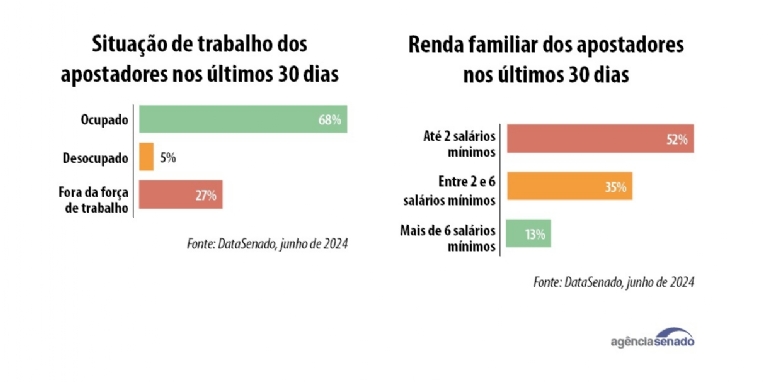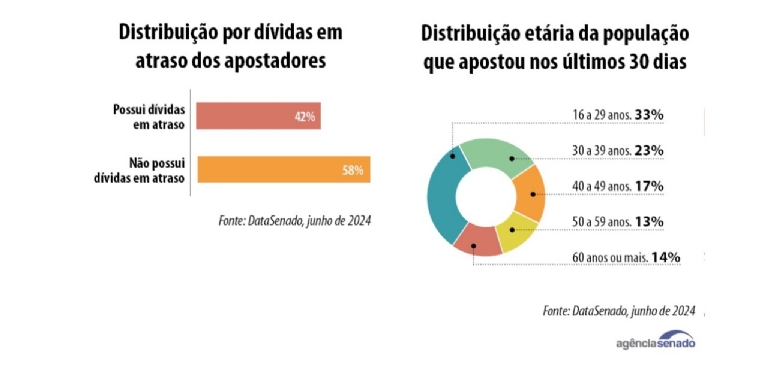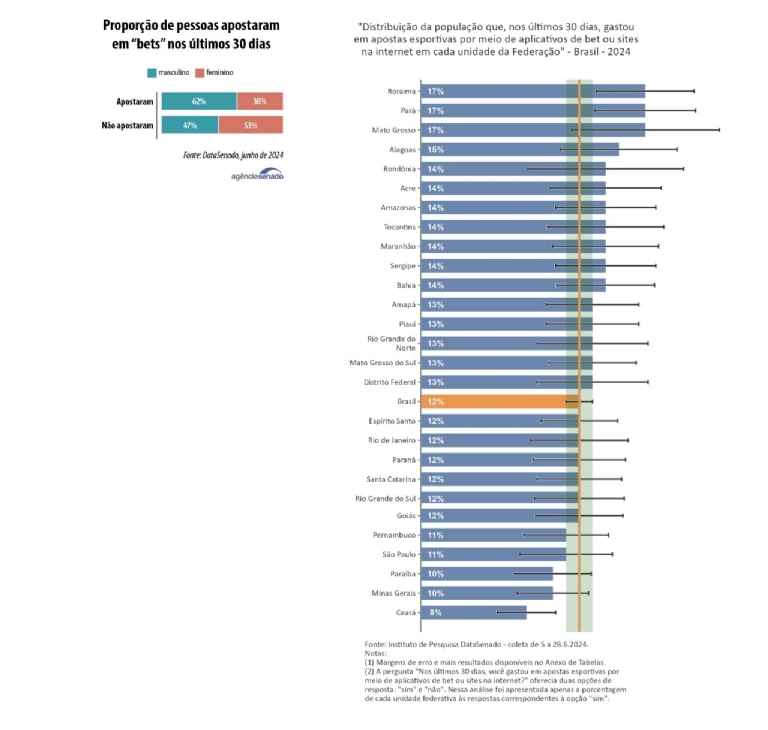

Among the respondents who placed sports bets, 62% are male. Women represent 38%. The majority of bettors (56%) are between 16 and 39 years old, followed by those aged 40 to 49 (17%), 50 to 59 (13%) and 60 or over (14%).
Regarding education, 40% have completed high school. Another 23% have not completed elementary school and 20% have not completed higher education or more.
Unemployed
From an economic standpoint, the majority claim to have a paid job (68%). Another 27% are out of the workforce and only 5% declare themselves unemployed.
Most bettors earn up to two minimum wages (52%) per month. The share that earns between two and six minimum wages is 35%, while 13% claim to receive a higher salary.
Among Brazilians who have placed bets, the majority claim to have spent up to R$500 (US$ 92,2) on apps or websites on the internet. Only 3% declared to have spent a higher amount.

According to the survey, 12% of Brazilians, on average, declared to have placed some type of sports bet in the last 30 days. The proportion is similar in almost all regions of the country, except for four states: Roraima, Mato Grosso and Pará had a percentage of 17%, above the national average, while Ceará was below, with 8%.

DataSenado Analyst José Henrique Varanda, coordinator of the survey, explains that “Panorama Político” investigates the topics being debated by parliamentarians in Senate committees. According to him, the impact of sports betting “is on the agenda of the National Congress” and for this reason it was included in this edition of the study.
“In addition to showing that almost 13% of the population placed sports bets in the last 30 days, the survey sheds light on some characteristics of this population. There is a higher proportion of men who placed sports bets, 62% [...]. Younger people bet more, and older people, less. [...] People with a high school diploma bet more, while people with less and more education bet less. Regarding income, low-income people bet less in proportion to this group in the general population. However, as it is the largest population group, it still represents the majority of gamblers,” he explains.

Debts
The DataSenado Institute also determined the percentage of gamblers with debts overdue for more than 90 days. They represent 58% of people who spent money on bets through apps or websites.
The survey was conducted between June 5 and 28. 21,808 people aged 16 or older were interviewed by telephone. The “Panorama Político” has been conducted since 2008. The survey assesses the opinions of Brazilians to indicate priorities for parliamentary action and quantify perceptions regarding democracy and the main topics under debate in the country.
What the law says
Allowed by the government of Michel Temer through Provisional Measure (MP) 846/2018, converted into Law 13,756 of 2018, online sports betting remained unregulated until last year. They were only regulated by Law 14,790, of December 2023. The rule deals with fixed-odds bets, in which the user knows the rate of return at the time of playing.
The law taxes companies and bettors, defines rules for the operation of the service and determines the sharing of revenue. The rule applies to virtual bets, physical bets, real sporting events, online games and virtual online gaming events.
According to the rule, companies can keep 88% of the gross revenue to cover the cost of the activity. Of the proceeds from the revenue, 2% is allocated to Social Security Contributions. The remaining 10% is divided between areas such as education, health, tourism, public safety and sports.
Also according to the legislation, 'Bets" must have headquarters and administration in Brazil. A regulation, to be proposed by the Ministry of Finance, should provide measures to prevent crimes such as money laundering and avoid disorders caused by pathological gambling.
Source: GMB / Agência Senado